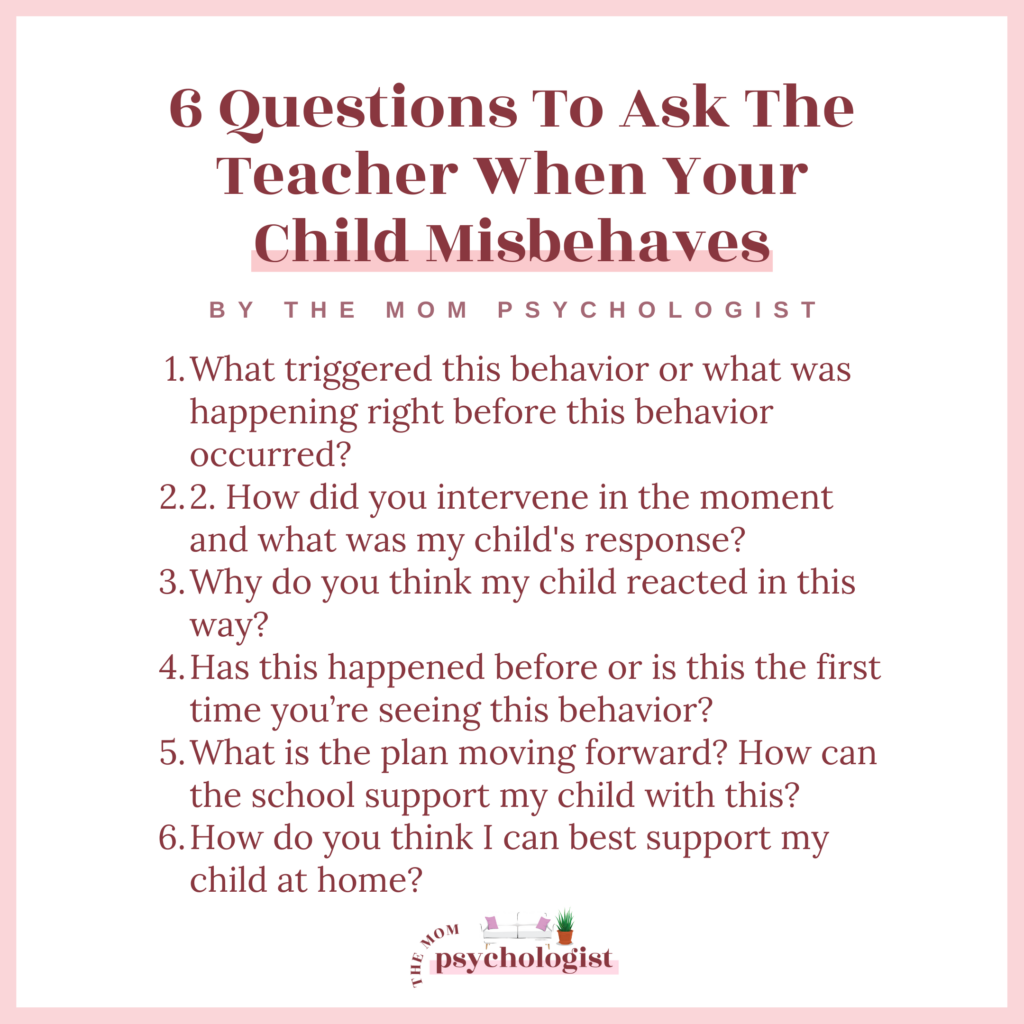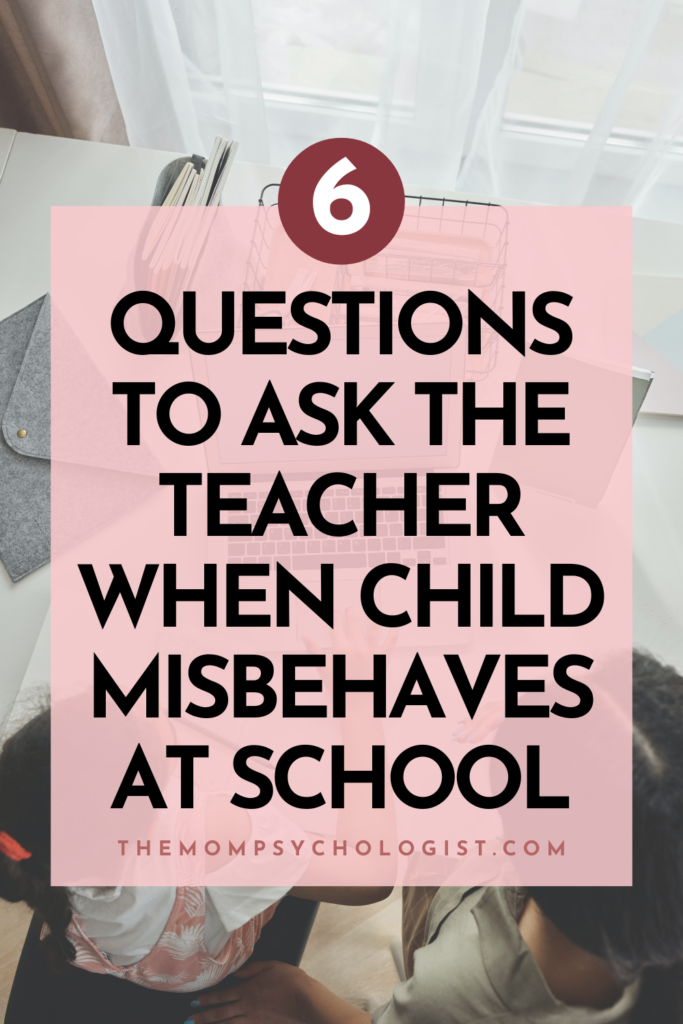watch now!
A place where I discuss all things related to toddlers and motherhood!
Subscribe to my Youtube channel
As a clinical psychologist, published author, and mother to two cheeky young children, I get it. I’ve spent YEARS researching and filtering through the noise online, so you don’t have to.
PARENTING TIPS
POTTY TRAINING
ANTIRACISM
PLAY
Blog Topics
SIBLING RIVALRY
SCREEN TIME
TANTRUMS
DISCIPLINE
Hi I'm Dr. Jazmine
Child Misbehave at School? Ask their Teacher THESE 6 Questions!
topics:
Rather listen? Here’s a link to this episode on my podcast!
I know it’s easy to feel overwhelmed, embarrassed and upset at your child when their teacher approaches you about their misbehavior.
There’s so many potential reasons why your child is misbehaving including:
- Poor social skills
- Issues with impulse control
- Sensory overwhelm
- Learning and thinking differences
- Inconsistent boundaries in the classroom
- Poor modeling from classmates/peer pressure
- Lack of connection with their teacher
- Chaotic home life (internal stress & anxiety)
- Personal changes/transitions
- Trauma and other mental health concerns
That’s why it’s sooo important to slow down and focus on gathering more information .
Pause, breathe & remember: this is about partnership.

Your child’s teacher is likely on your child’s side and just wants to see them thrive and learn to make better choices.
So pause and re-frame from “This is an attack on my child or an attack on my parenting..” to “I will stay open and get curious. I want my child to thrive at school and I play an important part in this. The best way to advocate for my child is to build a partnership with their school…”
Now real quick before we dive into the questions to ask your child’s teacher, I want to let you know I hosted a podcast miniseries called Breaking the Cycle, produced by theSkimm in partnership with Whirlpool to spread the word about the Care Counts™ laundry program, created by Whirlpool to address a hidden educational crisis: chronic absenteeism.
As a clinical psychologist I’ve witnessed, first hand, the toll that chronic absenteeism can take on kids, families, and communities across the country. And, as a mom of school-aged kids, this issue hits very close to home.
By the end of the series, you’ll understand how this issue affects a student’s social-emotional learning experience, mental health, and educational path.
You can tune in to the series on the SkimmThis feed here.

Ok so when your child’s teacher approaches you about their misbehavior in the classroom, I want you to slow down and gather information.
1. What triggered this behavior or what was happening right before this behavior occurred?
You want to get an idea of this behavior in context – behavior is just a symptom, a clue but it doesn’t tell us the full story. You want to pick their brain to see if they have an understanding of what was going on before this behavior.
2. How did you intervene in the moment and what was my child’s response?
You basically want to know the story of the behavior. What was happening before and what happened afterwards. How was this behavior handled?
How we respond in the moment influences behavior so you want to get an idea of how the teacher approaches this behavior.
3. Why do you think my child reacted in this way?
Now of course your child’s teacher is not a therapist or psychologist, but you want to understand what *they* think of the behavior. This colors the way they show up in the moment and will also help you gain a better understanding of their perspective.
4. Has this happened before or is this the first time you’re seeing this behavior?
You want to understand the frequency of this behavior. Is this a one time event or common? Is it getting worse over time, same or better?

5. What is the plan moving forward? How can the school support my child with this? Are there any programs to help my child? Do you think they need to be assessed by the school psychologist or meet with the school counselor?
This is where we pivot the conversation to future plans. What now? What is the plan? How can the school help support your child so that we can hopefully prevent this from happening again?
6. How do you think I can best support my child at home?
This question is super important and conveys that this is a partnership – that you’re involved and committed to staying involved.
Now this is a lot of questions. You don’t have to ask them all at once but I hope it gives you guidance on how to navigate these conversations so they’re productive and in the best interest of the child.
Often, it makes sense to schedule a meeting.
Don’t rush through this.
This is important and ideally, you want to intervene as early as possible. Knowing this information will help you know how to best help your child and whether or not your child needs more assistance from the school **

Don’t forget to tune in the podcast miniseries hosted by ME called Breaking the Cycle all about the hidden educational crisis of chronic absenteeism!
Was this helpful? Save it for later!

Leave a Reply Cancel reply
Copyright The Mom Psychologist® 2025
grab my free script pack!
explore
work with me
information
About
Blog
YouTube
Podcast
Privacy Policy
Terms of Use
Product Disclaimer
Contact
TMP Times (Newsletter)